Ihor Harmash: “From ‘cultural fast food’ to high-quality cultural product”
Ihor Harmash: “From ‘cultural fast food’ to high-quality cultural product”

What helps Ukrainians to stop tanks with their bare hands? To fundraise millions for Bayraktar drones? The Travelling Docudays UA and Suspilne Culture have prepared ten stories about the resilience of Ukrainians which will help us find answers to these questions. This text is a conversation with Ihor Harmash, a public and cultural figure, the founder of NGO Art Space Art Centre, co-organizer of the Centre for Saving Cultural Heritage, and manager of a Docudays UA film club.
Ihor Harmash has been working with docudays for 15 years, 12 of which he has been organising the Travelling Festival Docudays UA in Zaporizhia. 3 years ago he moved to Lviv, where he also created a film club.
INTRODUCTION
In 2006, I became the head of the Ascent Film Club in Zaporizhia, one of the oldest film clubs in Ukraine. I’ll be honest: initially human rights films were not really our format. We screened and discussed mostly auteur fiction, while documentaries rarely made it to our programme. But when I saw the documentary festival in Kyiv, all that atmosphere, emotions, I realised that it really was a unique tool which can create change in society.
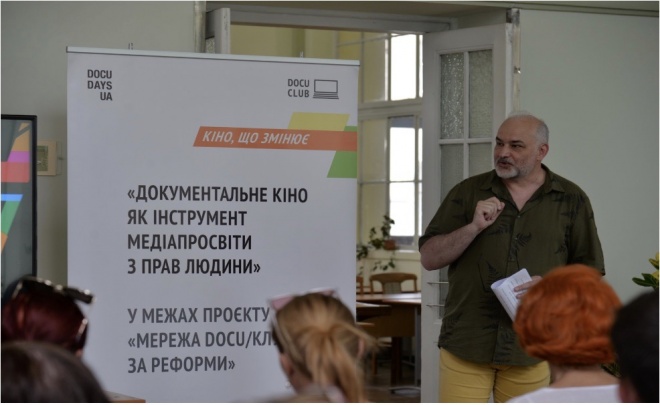
Photo: Ihor Harmash’s personal archive
BEFORE THE BEGINNING OF THE FULL-SCALE WAR
In Zaporizhia, our main challenge was to develop the demand for cultural products, particularly for documentaries. It wasn’t an easy task, to be honest. We started with non-stop screenings. From 10 a.m. until 10 p.m., we screened and discussed, screened and discussed… As soon as the discussion became less enthusiastic, we started the next film. And so, one event after another, one conversation after another, and voila, we have our own film club community.
When the pandemic started, the number of visitors naturally decreased, but we saw an interesting advantage in that. Since the most important thing about human rights documentaries is contact with others, the opportunity to launch a discussion and changes in people’s worldviews, these small-scale screenings were the most effective for this goal! Everyone had a chance to express themselves there without a fear of being criticised or judged.
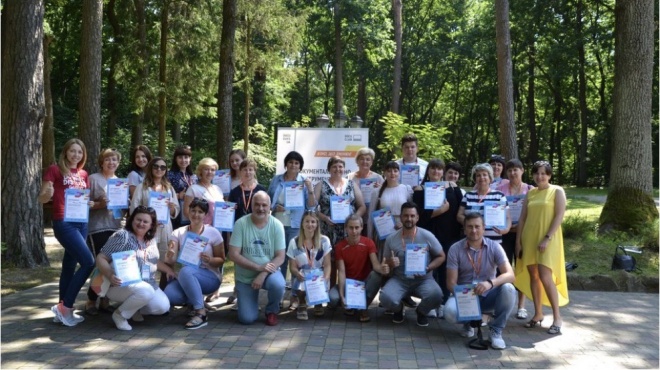
Photo: Ihor Harmash’s personal archive
To form a community of this kind, you need time, experience, empathy, and a good grasp of your audience. Without limits or prejudice. Only when you come to people with a film that will resonate with them will it have many audience discoveries. In 15 years I organised over 1,000 screenings. And the story with Docudays, by the way, is not just professional but also personal for me, because it was here that I met my future wife.
AFTER THE WAR: SAVING CULTURAL HERITAGE
Three years ago we moved to Lviv. So the war caught us here. In the first days we did what everyone else did: weaved camouflage nets, organised humanitarian aid. But when Russia started ruining our cultural heritage, we clearly realised that we were needed on the cultural front specifically, because everyone should be doing what they do best.
So on 1 March we gathered the community of cultural actors of Lviv and decided to create the volunteer Centre for Saving Cultural Heritage. At first we engaged private donor funding from all over the world and passed them on to heads of cultural institutions for their urgent needs. They made purchases and sent us confirmation receipts.
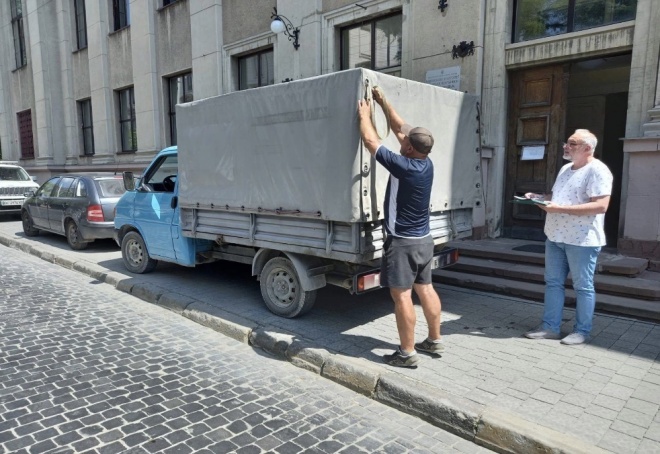
Photo: Ihor Harmash’s personal archive
Then we started buying and delivering materials for evacuating exhibits. A train car with materials arrives, we unload it, drive the materials to a warehouse, and then pass them on via volunteers to the cultural institutions that apply for our help. Over 80 cultural organisations have received various kinds of help from us.
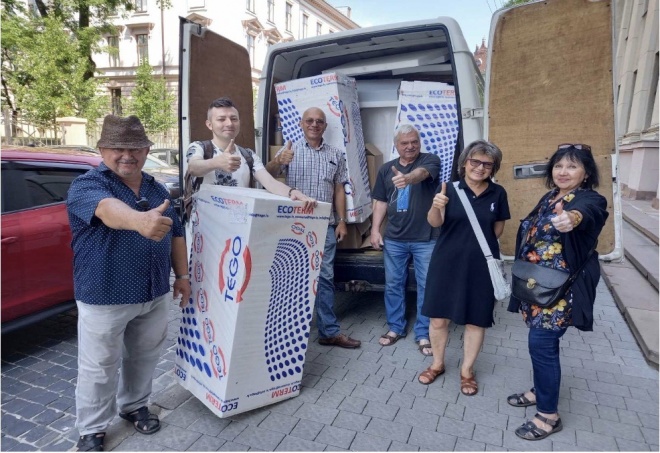
Photo: Ihor Harmash’s personal archive
In addition, we share educational videos about saving exhibits from the war. We plan to launch a Centre for Digitising Cultural Heritage soon.
Our centre is a long-term story, because the war is not the only risk to our culture. Right now nobody remembers about rapid climate change, technological disasters which will eventually affect us all greatly. We need to be prepared to respond to risks. This is our new reality!
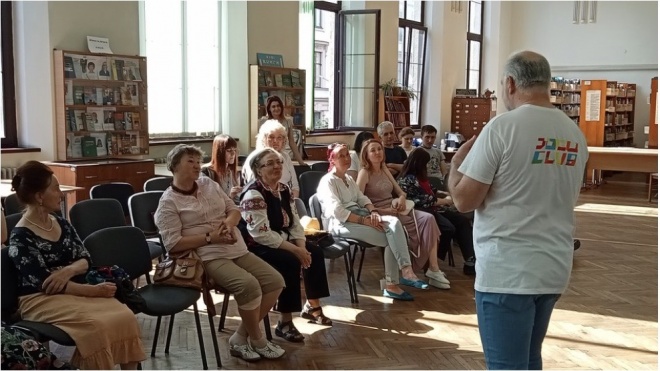
Photo: Ihor Harmash’s personal archive
FILM CLUB IN A LVIV LIBRARY
The Science and Technology Library of the Lviv Polytechnic National University is a real cultural centre at the moment. Every Tuesday and Friday we hold film screenings here. By the way, we recently bought a 75” TV, and now watching films is even more comfortable.
The first screening during the war was on the anniversary of the Chornobyl Disaster, we watched 10 Years of Exclusion by Serhiy Bukovsky. And then we invited the audience to watch the film Vote for Me Please! And I was so right to choose it! The film with its slight humour but serious subtext really impressed the audience.
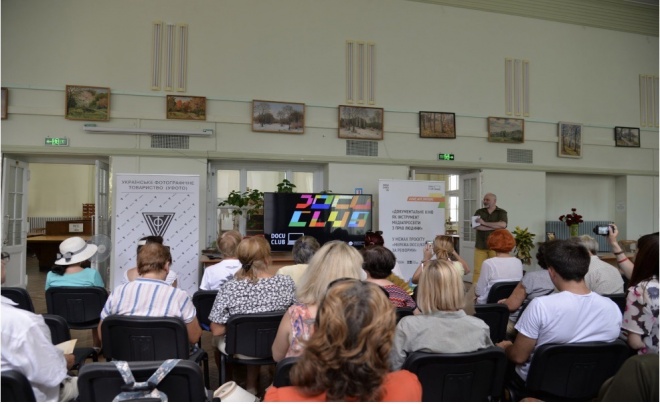
Photo: Ihor Harmash’s personal archive
I also study the interests of the Lviv audience. I closely watch people’s reactions and positions at discussions, analyse what resonates with people the most. Because whether a viewer will want to come next time depends on the film club moderator. On whether they received what they came for.
The audiences in Lviv and Zaporizhia are very different. First of all, the closer you are to russia, the more you feel the influence of russian culture. For example, despite its 700,000 population, Zaporizhia had only a third of the number of cultural centres that Lutsk or Lviv have. Secondly, in Zaporizhia, we were developing the demand for cultural products. In Lviv, meanwhile, that demand has existed for many years now.
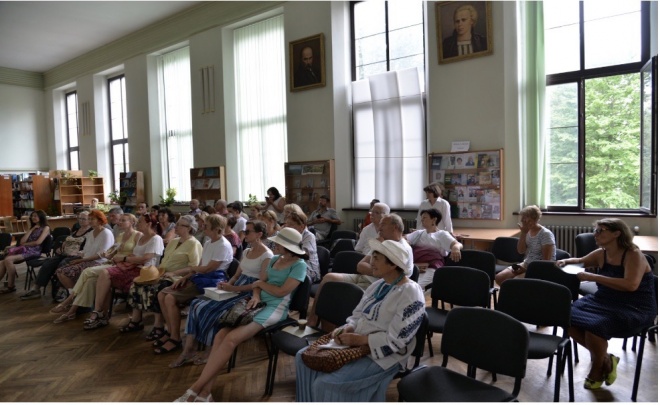
Photo: Ihor Harmash’s personal archive
I think that the process of creating the demand for cultural products starts with “tasting.” First you need to let people get the taste of it. Show them something qualitatively different from the proverbial “festival of varenyky.” I’ll make an analogy here: you can eat French fries and burgers all your life and then go to a fancy restaurant, order a high-quality dish made from high-quality ingredients and be shocked by the difference! People who are used to “cultural fast food” need to get the door to “high cultural cuisine” opened for them. We need to show them that it’s accessible and possible. So the more documentaries we show, the more people will start understanding it and wanting more. But the topic of the film must resonate: (a) with the audience you’re trying to reach; (b) with the events in the country and social moods.
We also shouldn’t forget about discussions, because they’re an integral part of a successful film screening. If the moderator doesn’t know how to conduct an interesting discussion after a film, then even if the film is very good, the audience may come out unsatisfied.
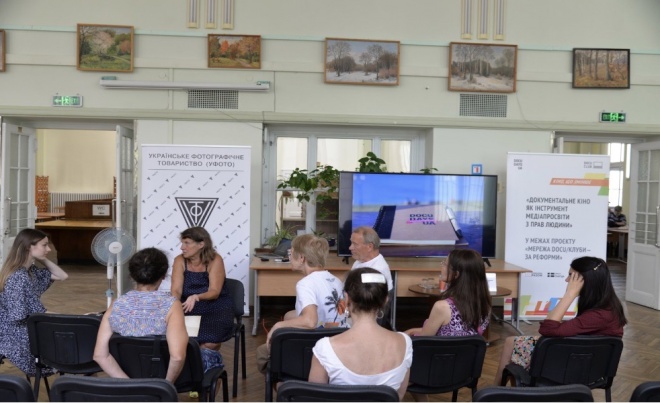
Photo: Ihor Harmash’s personal archive
But if both the film is selected properly and the moderator successfully establishes contact with the audience, there is a moment of unlimited trust, shared elevation, inspiration, flight of thought and spirit. That is when breakthroughs in the audience’s minds happen, when the need for high-quality cultural products develops. It often happens that the film is rather long, like an hour and a half, but we discuss it twice as long and don’t want to leave. These are the most valuable moments of my moderator happiness.
Interview recorded by Khrystyna Biliakovska